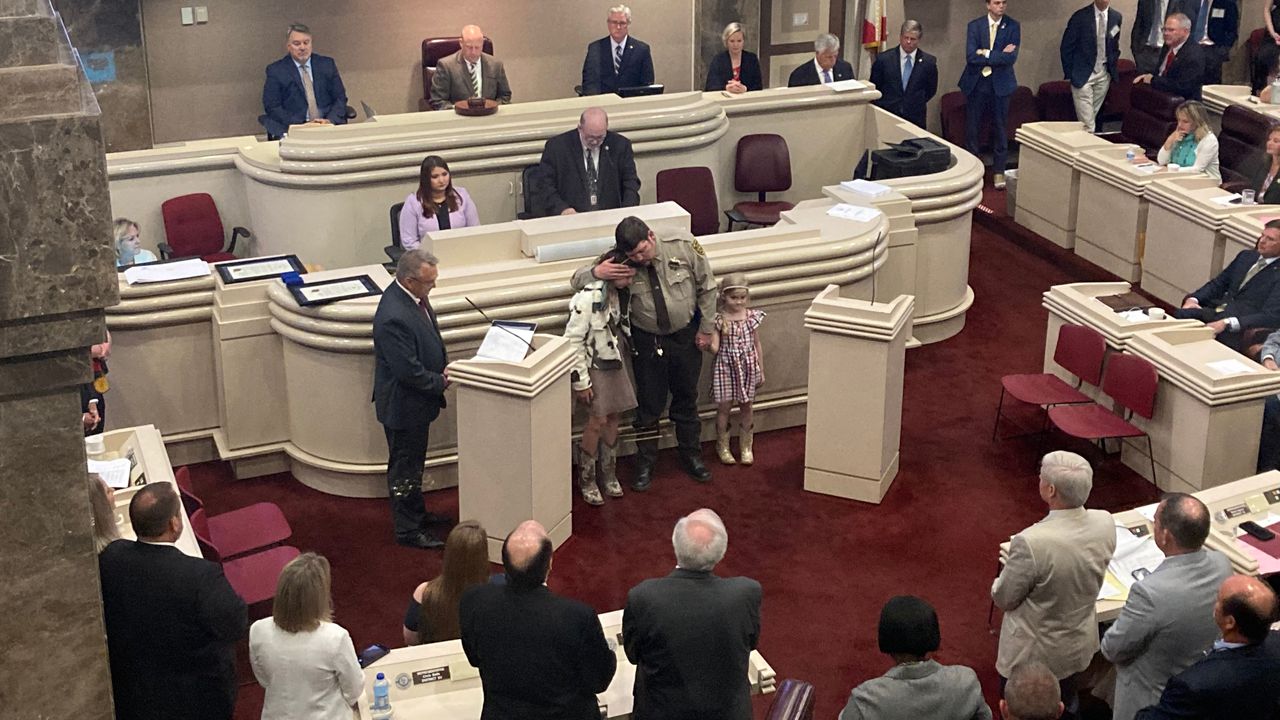Alabama moves to ban ESG as GOP-led states target businesses over abortion, fossil fuels, guns
The Alabama Senate Thursday approved a bill that would prevent state entities from contracting with companies that refuse to do business with fossil fuel producers, firearm manufacturers, companies do not “facilitate” access to abortion or gender-affirming care and other entities.
SB 261 passed 27-8 on a party line vote after a roughly two-hour debate where Democrats said the bill would drive out business and compromise free speech.
“This is a bad bill,” said Senate Minority Leader Bobby Singleton, D-Greensboro. “You’ve been working on three years of a bad bill. Just because you’ve been working on it for three years don’t make it right.”
The legislation is an anti-environmental, social and governance (ESG) bill, one of several pushed by Republican legislators around the nation. ESG aims to encourage companies to consider sustainability in investment decisions, particularly around climate change.
“We’re trying to address corporate boycott issues and contracts in this legislation,” Sen. Dan Roberts, R-Mountain Brook, the bill’s sponsor, said on the floor of the Senate Thursday.
The legislation prevents governmental entities from entering contracts worth more than $15,000 with companies with more than 10 employees engaged in “economic boycotts.”
The bill defines economic boycott as “refusing to deal with, terminating business activities with, or otherwise taking any commercial action that is intended to penalize or inflict economic harm on a company solely because the company, without violating controlling law or regulation” doing the following:
- “Engages in the exploration, production, utilization, transportation, sale, or manufacturing of fossil fuel-based energy, timber, mining or agriculture”
- “Engages in, facilitates, or supports the manufacture, import, distribution, marketing or advertising, sale, or lawful use of firearms, ammunition, or component parts and accessories of firearms or ammunition.”
- “Does not meet, is not expected to meet, or does not commit to meet environmental standards or disclosure criteria, in particular to eliminate, reduce, offset, or disclose greenhouse gas emissions”
- “Does not meet, is not expected to meet, or does not commit to meet corporate employment or board composition, compensation, or disclosure criteria”
- “Does not facilitate, is not expected to facilitate, or does not commit to facilitate access to abortion or sex or gender change surgery, medications, treatment, or therapies.”
Companies entering contracts with public entities must verify that they do not engage in economic boycotts as defined by the bill.
The bill authorizes the Alabama attorney general to use “all remedies at law or in equity to enforce this act.” The bill also requires the attorney general to oppose federal laws that would infringe on the bill.
Alabama Attorney General Steve Marshall said in testimony before Congress earlier this month that “global elites in the private sector have taken our country on a climate crusade.”
According to the Environmental Protection Agency, about 63% of Alabama’s greenhouse gas emissions in 2021 came from power plants.
Sen. Robert Stewart, D-Selma, asked why the environment was included, saying that tornado season has extended since when he was growing up. He said there are often discussions about clean energy.
“Why can’t we be innovative?” he asked. “I think this legislation will stifle us from being innovative. We talk all the time about how our kids are leaving their state in droves, and they’re not coming back.”
Singleton added an amendment to the bill from the governor’s office which would exempt the finance department.
Others questioned the priorities of the bill. Sen. Merika Coleman, D-Pleasant Grove, had questions about the section that related to “abortion or sex or gender change surgery, medication, treatment or therapy” and the preceding sections.
She said she was “trying to figure out in our state where these things are happening.”
Sen. Rodger Smitherman, D-Birmingham, said that this is a bill trying to “legislate morality.”
“When are we going to find the courage, as a body, to make the decision, not on politics, but on right and wrong,” he said.
The legislation moves to the House of Representatives.
